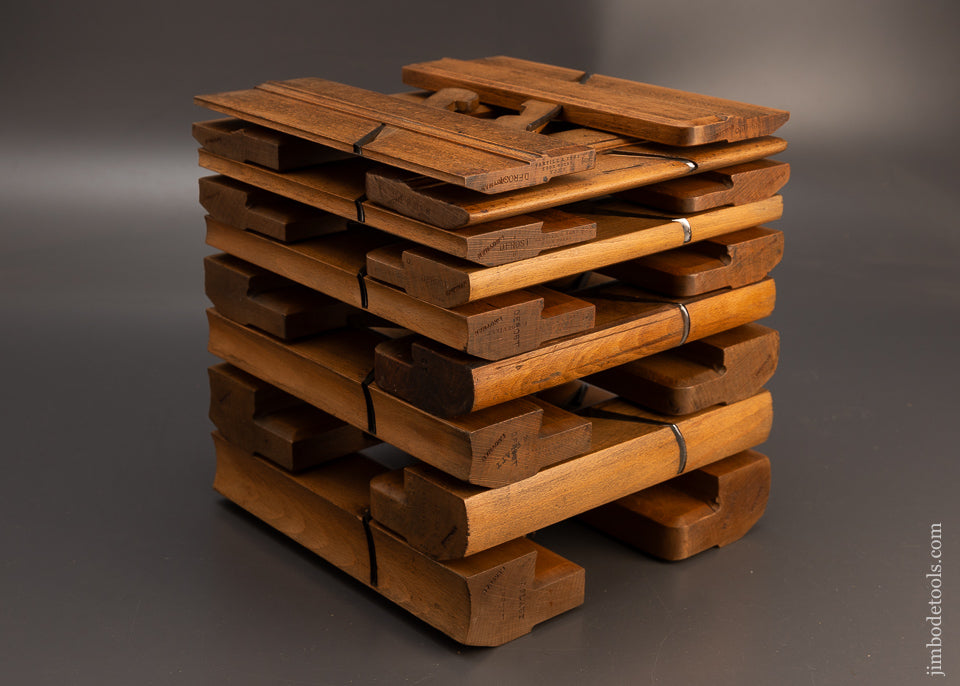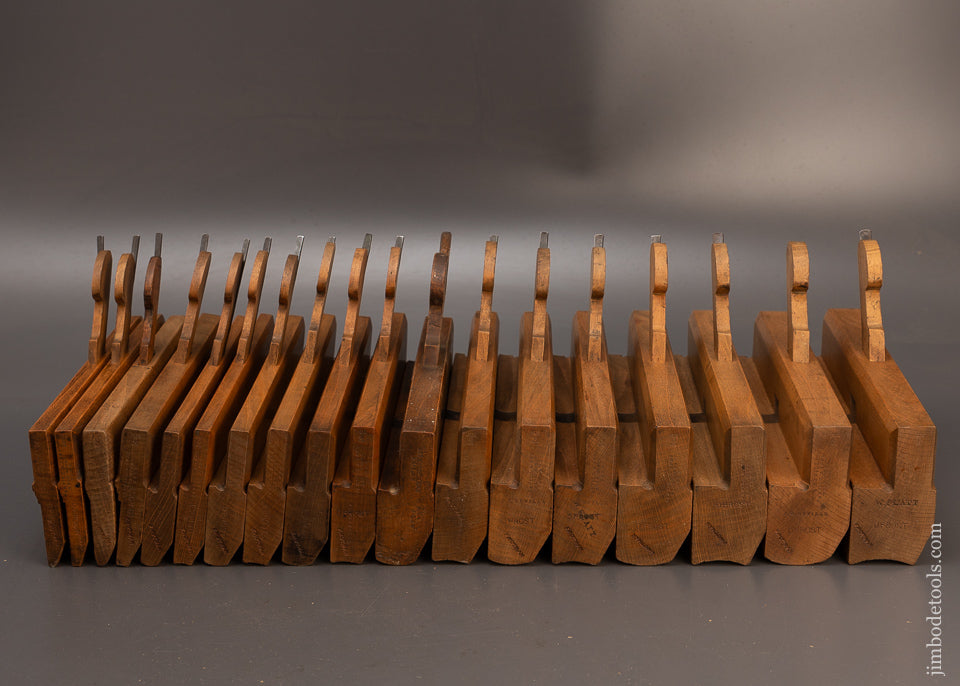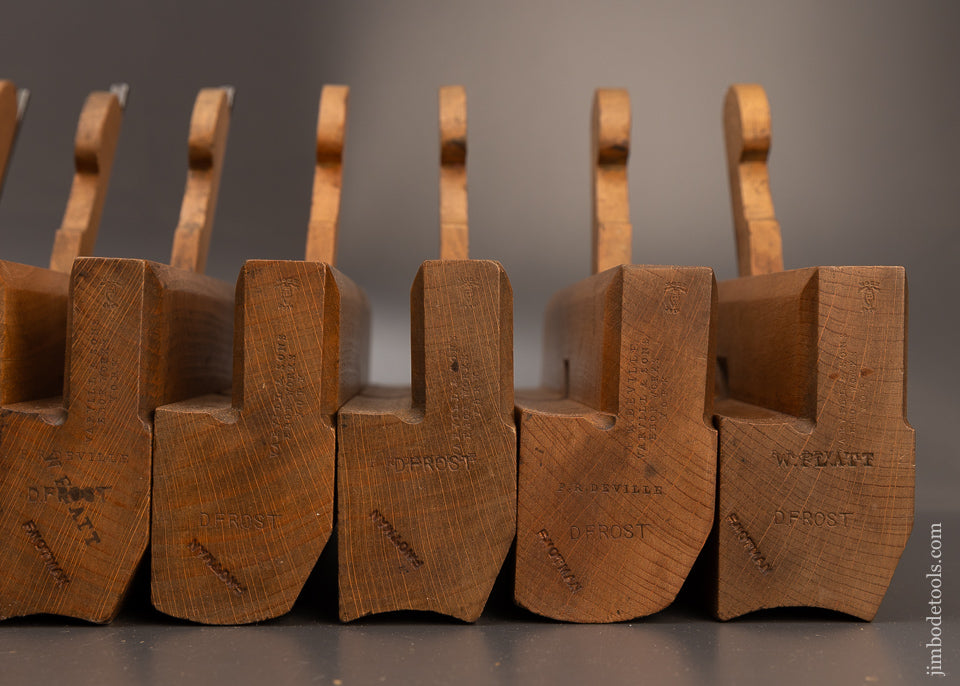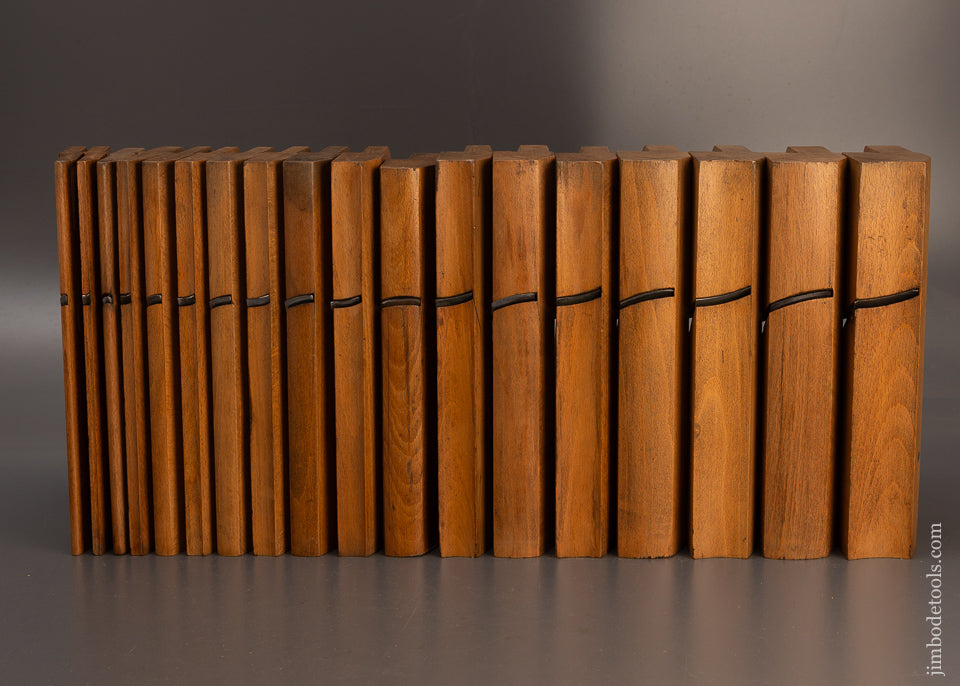Even- numbered set 2-18. All marked Varvill. The 132R & possibly the 4R are replacements- both Varvill. Skewed irons pitched at 50°. York, England. Ca. 1791-1904. Hollows and rounds have a distinct advantage over all other dedicated moulding planes in that they can be worked in either direction upon the same edge. No worries about grain direction. A set of hollows and rounds along with a couple of other planes can reproduce almost any moulding. They were offered in a range of bed angles called pitch. 45° common, 50° York, 55° middle, 60° half. Pitches above 50° are commonly called cabinet pitch and intended for use on cabinet grade hardwoods which were left unpainted, therefore tear out would be unacceptable. Sets of hollows and rounds typically range in size from 3/16" to 1 1/2" but there is no standard.
- Gallery
- Description




Even- numbered set 2-18. All marked Varvill. The 132R & possibly the 4R are replacements- both Varvill. Skewed irons pitched at 50°. York, England. Ca. 1791-1904. Hollows and rounds have a distinct advantage over all other dedicated moulding planes in that they can be worked in either direction upon the same edge. No worries about grain direction. A set of hollows and rounds along with a couple of other planes can reproduce almost any moulding. They were offered in a range of bed angles called pitch. 45° common, 50° York, 55° middle, 60° half. Pitches above 50° are commonly called cabinet pitch and intended for use on cabinet grade hardwoods which were left unpainted, therefore tear out would be unacceptable. Sets of hollows and rounds typically range in size from 3/16" to 1 1/2" but there is no standard.



